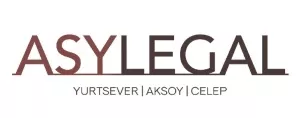- in United States
- with readers working within the Oil & Gas industries
- within Technology, Family and Matrimonial, Food, Drugs, Healthcare and Life Sciences topic(s)
DRUG CRIMES IN TURKEY
Unlike some EU countries, Turkey has a rather strict drug policy, where even illegal drug possession, including cannabis/marijuana, is considered as a punishable offense. In Turkey, almost all drugs are considered illegal and there is no legislation that allows the medical use of any non-pharmaceutical drugs. The main legislation and the provisions concerning illegal drugs are set forth at the Turkish Penal Code No. 5237 (TPC), and although the law does make a distinction between drug trafficking (Art. 188), enabling the sales of drugs (Art. 190) and drug possession for personal use (Art. 191), all three are considered as acts of crime and are deemed as punishable offenses.
DRUG POSSESSION FOR PERSONAL USE
As noted above, drug possession for personal use is regulated under Article 191 of the Turkish Penal Code. According to subparagraph 1 of this Article 191, anyone who purchases, accepts, or possess illegal drugs for personal use shall be sentenced to prison from 2 years up to 5 years. It is important to note here that this provision is also applicable for possession of cannabis/marijuana or other similar plant-based drugs.
One of the most common arguments against such severe punishment, especially from foreigners, is that foreigners visiting Turkey are not aware that their actions constitute crimes and should therefore be exempt from these provisions. Although this punishment seems severe, especially when compared to provisions applicable in Europe and the United States, this is nevertheless the applicable law in Turkey, and claiming that the offender did not know the law and therefore did not intend to commit the crime is not an adequate defense in such a situation.
POSTPONING THE PUBLIC PROSECUTION FOR DRUG POSSESSION CHARGES
Even though subparagraph 1 of Article 191 states quite a severe punishment, 191/2 also sets forth that during the investigation into the suspects who are caught in possession of drugs according to the article 191/1, the initiation of a public prosecution shall be postponed for a period of 5 years. This is quite important, as the law states that all public prosecutions must be postponed for all charges regarding drug possession (as per Article 191), provided that the suspect does not have any priors from similar offenses.
Article 191/2 of the TPC, which states this postponement mechanism, also refers to Article 171 of the Criminal Procedure Code No. 5271, which is the article regarding the "discretionary power to commence a public prosecution". According to the title, this article gives a discretionary power to prosecutors to decide whether to proceed with a public prosecution, subject to certain rules and requirements. Accordingly, the prosecutors may (not shall) decide to drop all charges and decline to commence a public prosecution under certain conditions. As per Article 171/2, the prosecutors may also decide to postpone the commencement of a public prosecution for crimes with a maximum sentence of 3 years, subject the criteria set forth at Article 171/3.
Although they look similar, the mechanisms of postponement of public prosecutions provided for in Article 171 of the Criminal Procedure Code and the one provided for in Article 191/2 of the TPC for drug possession charges are quite different. The mechanism provided for drug possession charges is a mandatory mechanism that the prosecutors are required to use, whereas the general mechanism set forth the Criminal Procedure Code is an optional one, left to the discretion of the prosecutor.
PROBATION PERIOD AND POSSIBLE PROBATIONARY MEASURES
According to the Article 191/3, all suspects charged with drug possession charges shall be subjected to a probation period of at least 1 year following the decision to postpone the public prosecution. This probation period can be much longer in practice and in certain cases it can extended for the entire five-year postponement duration, depending on the specifics of the case and the suspects.
Several different probationary measures may be applicable to suspects, again depending on the specifics of the case. These are usually issued depending on the nature of the events leading to the arrest/detention of the suspect, as well as how much drugs the suspect was carrying at the time. The aim of such probation periods and probationary measures is to rehabilitate the suspect and to prevent him/her from using drugs again in the future by eliminating any possible addictions the suspect may have developed to such drugs.
The probation mechanism and probationary measures are governed by the Criminal Procedure Code and the Regulation Regarding Probation Services. According to the Regulation, following the decision of postponement and probation, the case and the probation decision will be registered into e-judiciary system (UYAP) and the decision will be notified to the Probation Directorate (contact information for Istanbul Probation Directorate can be found here), which will then issue a notice to the suspect/convict, request him/her to appear before the Directorate within five (5) working days following the receipt of the notice. It is important for the suspect to adhere to this notice and appear before the directorate within the given time, as failure to do so may be deemed as grounds to revoke the probation and postponement decision, and a public prosecution may be commenced by the prosecutor against the suspect.
Once the suspect appears before the Directorate, he/she will be assigned a probation case officer who will follow and monitor her/his progression throughout the probation program. The program may include regular checks, which may require the suspect to appear before the directorate in pre-determined time intervals (for example once a week, or once every two weeks), periodic urine samples, rehabilitation and counseling services where the suspects are required to attend classes or are required to appear before counselors etc.
OBJECTING TO POSTPONEMENT DECISIONS
As noted above, the indirect consequences of a postponement decision can be quite severe, as the probation period can be quite long the requirements and measures assigned to the suspect during such probation period can be taxing, especially if the suspect believes that he/she is wrongly accused of such crimes. Since the postponement decision is not issued by a competent court but rather is directly issued by the prosecutors, there are no court hearings or a judicial process before such decision is issued (as the law sets forth this decision as a mandatory decision that must be issued by the prosecutors).
Due to this mandatory mechanism, it is generally not possible for suspects to argue their innocence before such postponement decision is issued. Therefore, suspects who believe that they are wrongly accused or who do not want a postponement decision for any reason, should file for an objection against the postponement decision before the competent courts. The problem with an objection filing is that it arises from the same Article 171 of the Criminal Procedure Code, which refers to Article 173 for objections against postponement decisions. However, the referred Article 173 only provides a right of objection only to the victim of the crime and only in cases where the prosecutor decides that the case does not merit a public prosecution and drops all charges. It does not provide a right of objection to the suspect where a postponement decision is issued. This is therefore a complicated issue and courts have issued conflicting decisions regarding the right of objection of the suspect.
POSSIBLE OUTCOMES OF VIOLATING PROBATION
As mentioned above, it is important for the suspects to adhere to the notices to appear before the directorate within the given time, as failure to do so may be deemed as grounds to revoke the probation and postponement decision. It is also extremely important for suspects to strictly adhere to the assignments and probation measures issued by the directorate, as any failure to do so may be result in the revoking of the postponement decision and the suspects may face actual jail time following the commencement of a public prosecution. It is therefore imperative that persons who are on probation to adhere to these rules strictly, and in case they are unable to keep an appointment date due to a justifiable reason, they should immediately notify the directorate regarding their current situation.
The content of this article is intended to provide a general guide to the subject matter. Specialist advice should be sought about your specific circumstances.
[View Source]

